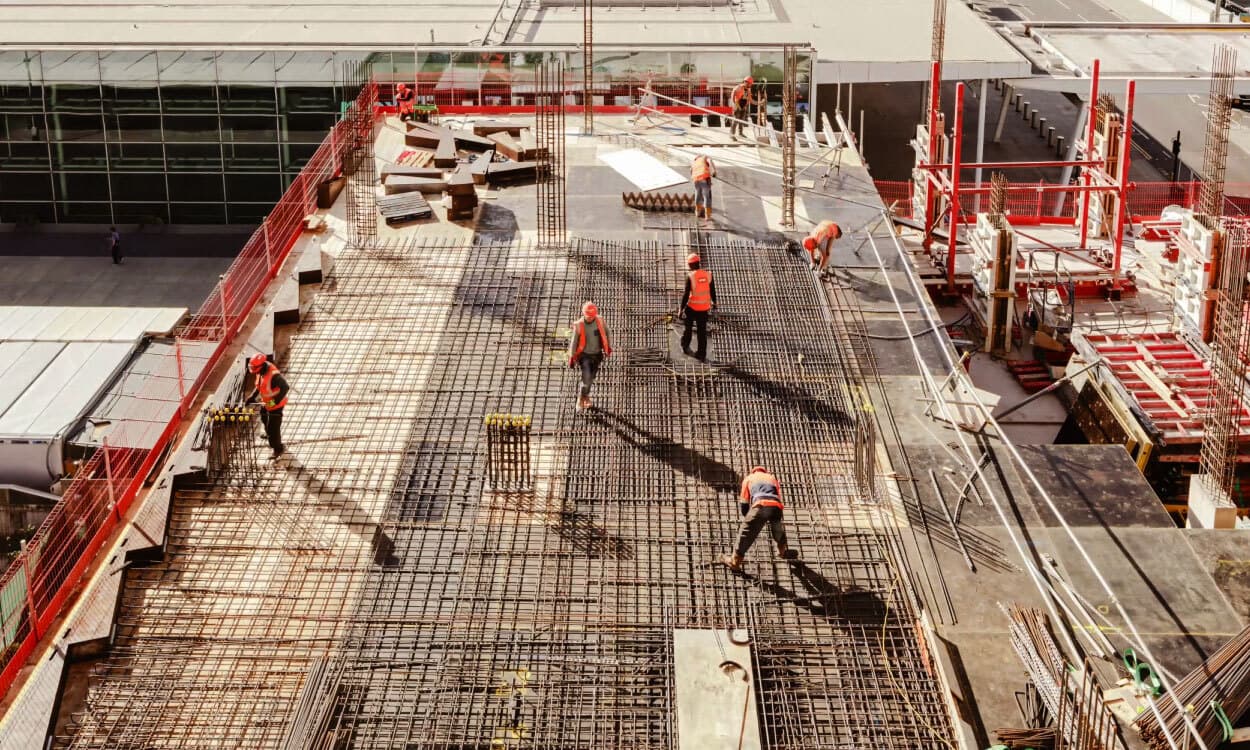

25 Mar 2024
Does a Limited Company Have to be CIS Registered?
If you own or manage a company that works within the construction industry, then there is always a lot you need to think about and consider.
From ensuring project timelines are on track to complying with health and safety regulations to keep your staff protected, taxation is another factor that should be thoroughly understood.
Unlike other industries, the construction sector has a specialist tax system known as the Construction Industry Scheme. Also commonly known as CIS, for more than 50 years this system has helped make taxation easier for those in the industry while also clamping down on tax evasion and avoidance.
It’s a legal requirement for all contractors to be registered as a way to keep them, and subcontractors, protected.
But what about limited companies?
In this article, the team here at Contractwise will answer the question ‘does a limited company have to be CIS registered?’ helping you to understand the legislation while also ensuring you’re fully compliant with all of your obligations.
Read on to find out more.
What is the Construction Industry Scheme?
Before we turn our attention to what is required of a limited company in regard to the Construction Industry Scheme, or CIS, let’s first establish exactly what it is.
Created in 1971, the Construction Industry Scheme was introduced by the government of the day as a way to simplify payroll and tax in the construction sector. During the 1970s, subcontractors would often be paid in cash which they would be expected to declare later on. However, in this era, it was difficult to establish who was honestly declaring their earnings and who was holding back in an attempt to avoid tax - thereby breaking the law in the process.
With this in mind, the Construction Industry Scheme was introduced.
Now, contractors automatically deduct 20% of their CIS registered subcontractors' earnings from invoices for tax purposes. It’s not mandatory for subcontractors to register for CIS like it is for contractors, but for those who do not, they will have 30% of their earnings deducted.
The purpose of the scheme is to make the entire taxation process more transparent and easier for those working in the industry, as well as reducing tax evasion which was easier before the regulations came into force.
In 2007, new rules were incorporated into the existing CIS regulations to update them. These changes remain in place today and it is a legal requirement for all contractors to be fully CIS compliant. Those who are not, face the risk of costly fines and penalties.
The benefits of the Construction Industry Scheme
While the primary purpose of the Construction Industry Scheme is to simplify the taxation process and reduce tax avoidance within construction, the range of benefits is extensive and wide-reaching.
They include:
An enhanced cash flow - As mentioned above automatic 20% deductions are made from the invoices of registered subcontractor which improves their flow of cash as they are always aware of the money they have to work with. Due to the fact that deductions have already been made, they do not need to worry about further taxation later down the line. It’s worth mentioning that those subcontractors who are not registered will see 30% of their earnings taken. This means that you receive 10% more of your money if you do register for CIS, so as a subcontractor it is always worthwhile.
Spread the tax burden - Whether it is 20% or 30%, all of the money that is taken as part of the CIS system will go towards annual tax and national insurance bills. This means that the money is spread across the year meaning you will not have to pay a high lump sum at the end of the financial period. As well as helping subcontractors more effectively manage their finances, this also means that they will not face a nasty surprise in the form of a high tax bill.
Lower chances of tax evasion - Another core component of the Construction Industry Scheme is that it reduces tax evasion within the construction industry. It is mandatory for all contractors to be registered and automatically make the aforementioned deductions. This money is then passed directly to HM Revenue and Customs (HMRC) so subcontractors will always be paying their taxes correctly and the opportunity for criminality is reduced significantly.
Easier to comply with tax laws - The CIS system makes paying taxes far more straightforward - especially for subcontractors. Tax deductions are automatically made on their behalf by contractors, meaning subcontractors are able to better understand their finances, budget more efficiently and avoid large tax bills at the end of a financial year.
Regular income reporting - As part of the scheme, all contractors are required to frequently provide reports and outline payments they have made to subcontractors directly to HMRC. This must be done each month which gives HMRC a clear idea of the money being paid within the construction industry, and helps them to establish whether or not taxes are being paid correctly and on time.
What is considered a contractor and subcontractor?
The most important thing when it comes to CIS is understanding the role you play and your obligations within it. This is because if you do not register for the scheme when you are legally obligated to, you could face hefty fines as a result.
Remember, a contractor must always register whereas a subcontractor has the choice whether they want to do so or not.
Let’s take a quick look at the different roles to give you a clear idea of where you fit in.
A contractor
A contractor is defined as a professional who pays subcontractors to carry out certain construction jobs. Subcontractors are different from employees who work directly for the company and they must be brought in as a third party that is separate from your organisation. People who work for you are employees, and if you incorrectly register them as subcontractors then HMRC may reclassify them.
A reclassification risk can have a detrimental effect on a business due to the various fines and interest that you will likely incur in the event of reclassification. This is why it’s so important you always correctly register subcontractors from the start.
If you’re not a construction business but have spent more than £3 million on construction in the last 12 months, then it is also a legal requirement to register for CIS.
A subcontractor
A subcontractor, on the other hand, is someone who has been brought on board by the contractor to carry out a specific construction task. Usually, subcontractors are specialists in a certain field.
Examples of commonly used subcontractors in construction include:
Engineers
Electricians
Plumbers
Carpenters
Brickies
Plasterers
Stone masons
And much more
Unlike contractors, subcontractors do not legally have to register for CIS but it is in their interest to do so. Those who do have 20% of their earnings deducted by the scheme, but this is increased to 30% for unregistered ones.
Does a limited company have to be CIS registered?
Yes, if you own a limited company in the construction industry you should be CIS registered. The rules vary slightly depending on your role within the construction sector (contractor or subcontractor) but registering for CIS should always be something you do.
Let’s take a look at the different options.
You’re a limited company working as a contractor
As previously mentioned, contractors must always register for the Construction Industry Scheme and this is still the case if you’re a limited company. It will be your responsibility to deduct CIS payments directly from the invoice of your subcontractors. These monthly payments should be part of your company’s existing PAYE processes.
As well as this, you are required to provide monthly reports to HMRC that outline how much money you have deducted for CIS.
You’re a limited company working as a subcontractor
On the other hand, if you’re a limited company that is doing the work as a subcontractor, you do not legally have to register for CIS but we would always recommend you do.
While CIS deductions will be made on your behalf by the contractor, you will be deducted 30% rather than just 20% if you’re unregistered.
As well as this, once these initial deductions have been made, you will then have to make your own CIS deductions to pay your individual subcontractors. You can then make a CIS refund request to HMRC which is the difference between the two figures.
This is a slightly more complicated process due to the fact that, typically, subcontractors are sole traders rather than limited companies.
No matter where you fit into the construction industry workforce, Contract Wise is here to help. We have years of experience in all matters relating to the Construction Industry Scheme and can help you remain compliant and remove the risk of any reclassification by HMRC. For more information on how we can help, get in touch with our friendly team of experts today.